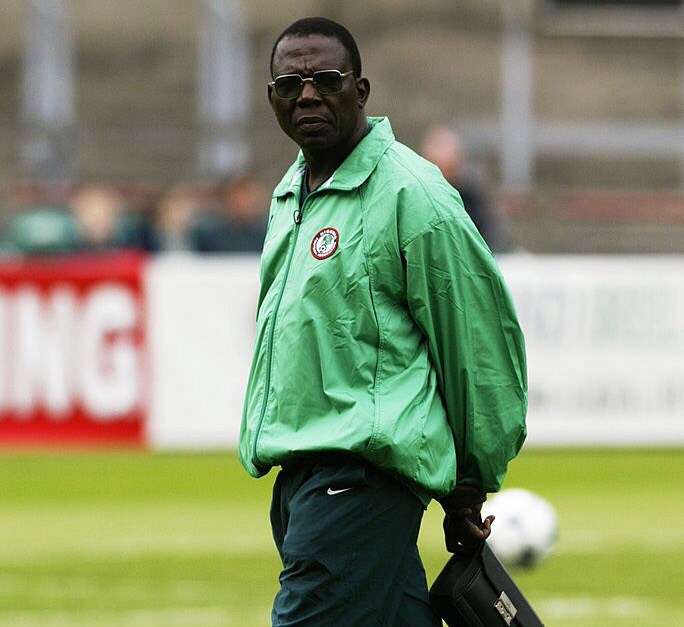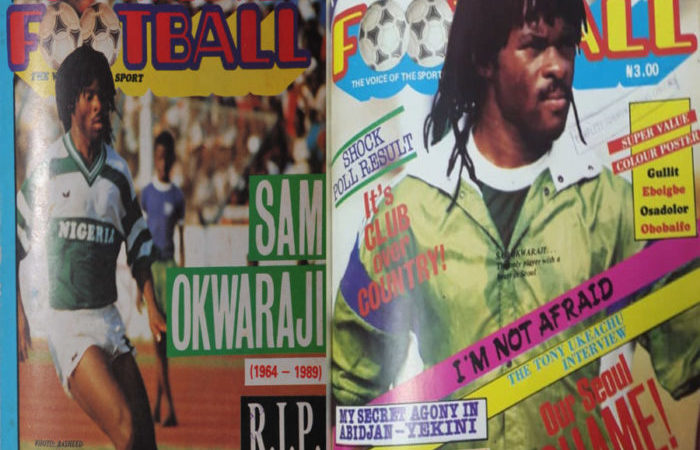[vc_row][vc_column][vc_column_text]
Biodata
FULL NAME: Bright Omokaro.
DATE OF BIRTH: 24th February, 1962
NICKNAME: ‘Ten-Ten’
START OF FOOTBALL CAREER: Played street football as a young boy in school in Benin, mid-Western Nigeria before teaming up with a local clubside Dumes FC, 1970
CLUBSIDES PLAYED FOR: Bendel Insurance FC, Benin; New Nigeria Bank, Benin; Africa Continental Bank (ACB) Lagos; Abiola Babes, Abeokuta; IICC Shooting Stars, Ibadan.
HONOURS WON: Challenge Cup (1979), League Trophy (1980), WAFU Cup (1983 & 1984), Africa Cup of Nations Cup silver (1988);
START OF NATIONAL TEAM CAREER: 1980.
FIRST NATIONS CUP APPEARANCE: Nigeria 1988.

My feeling at being called up to the national camp was rather mixed. I felt very happy and nervous at the same time. But I also felt ready to give my best, too. I was not under a lot of pressure as I had some of my club-mates in the national team who made me feel at home.
THE QUALIFIERS
NIGERIA missed the previous tournament in 1986 held in Egypt as Zambia qualified ahead of us. So by the time the qualifiers for the 1988 Africa Cup of Nations started, expectations were high as fans expected to see the Green Eagles in action at the competition we last featured in 1984 in Ivory Coast.
The qualifiers pitched us against Togo and Sierra Leone. We beat Togo 2-0 in Lagos and then went on to play a 1-1 draw with them in Lome.
Next was Sierra Leone whom we beat 3-0 in Lagos. However, the return leg in Freetown almost went out of hand as they beat us 2-0 with the first goal coming as early as the first minute which put us under serious pressure. They also got a penalty which they missed and thereafter it was tough for us as we laboured to hold them till the dying minute when they scored their second goal. So we edged them out on 3-2 aggregate to book our place in the Nations Cup finals in Morocco. It was a really memorable game in Freetown.
PREPARATION AND SQUAD SELECTION
I was originally invited to the Green Eagles squad for the 1980 Africa Cup of Nations which we hosted and won although I didn’t make the final selection under coach Otto Gloria. But since then, I remained part of the national team set-up. I played as the right fullback alongside prominent defenders such as Yisa Sofoluwe, Stephen Keshi and Sunday Eboigbe whom I regard as Nigeria’s best defender of that era.
I remember I was invited to join the team for preparations towards the 1988 Africa Cup of Nations in Morocco by the German coach of the Eagles then, Manfred Hoener. I was playing my club football with New Nigeria Bank of Benin and I was invited to the national camp alongside some of my clubmates including the likes of Humphrey Edobor, Eboigbe, Samson Ozogula, Amos Edofuye and Wilfred Agbonivbare.
At that time, it was the most prestigious thing to be invited to play for your country. It was one thing we cherished so much and we had lots of fun. Group Captain John Obakpolor was the chairman of NFA. He took over from his fellow comrade, Group Captain Anthony Ikazoboh.
The coach, Manfred Hoener, was a very good person and he related with the players well. Paul Hamilton was his assistant and we had a military officer as the camp commandant. We went to Germany to prepare for the Nations Cup and camped at a very good hotel which had every facility that makes a European hotel tick. And above all, we had a very good pitch to train.
But the weather was tough as it was very cold. That was understandable because we needed to train under a similar weather condition to that of Morocco for the players to acclimatize. But I tell you, it was not easy coping with the cold.
The training schedule was heavy. Most times we went out for training as early as Six O’clock in the morning. Sometimes, snow would be falling, and we had to wear gloves. We were made to run after motorbikes and other such hard training. I dare say that if the present Super Eagles trained as hard as we did back then, no team in Africa will be able to stand up to them.
The food? There is no place like home and you know that we Nigerians that come from the Eastern part of the country cherish our local food so much. We missed the Nigerian dishes of course, but we managed with what we were served in the camp since it was just for some time.
Dominic Iorfa was my room-mate in Germany, and the funniest character in the camp then was Humphrey Edobor. He made the camp very lively for everybody with his funny antics. And when we won a game, we celebrated a little and then relaxed to think of the next game. The players got along well. In my own case, I had about nine of my NNB clubmates in the camp, so it was like one big family and the spirit was high.
THE TOURNAMENT
IT was a memorable experience flying with the team to the tournament proper. It is always fun when you are travelling in a group. I remember vaguely that we boarded a Moroccan Airline to the venue. Even in Morocco, the food issue was the same as in Germany, but we sometimes got to eat local dishes courtesy of the Nigerian embassy in Morocco.
Samson Ozogula usually led the songs in the bus whenever we were going for matches. We usually sang a popular Christian song that says: “I have a father that will never, never fail me,” because most of us were Christians. And when the team wanted to pray, it was either Henry Nwosu or I that led the prayers.
There were only eight teams in the finals. Group A comprised of hosts Morocco, Algeria, Cote d’Ivoire and Zaire and were in Casablanca. Nigeria was in Group B alongside Kenya, Cameroun and Egypt in Rabat. Our opening game was against the Harambe Stars of Kenya. The Kenyans played with flair but we were more purposeful and we exploited the space up front. Yekini, Edobor and Okosieme scored for Nigeria as we recorded our victory over Kenya with a 3- 0 scoreline.
We were very happy because it is always good to win your first game in a big tournament like the Nations Cup. The celebration was low-keyed because we needed to focus on the next game. However, the win helped to ease the pressure and gave us more confidence to approach the next game.
The second game was against our perennial rivals Cameroun. We played a 1-1 draw with Sam Okwaraji scoring a beautiful goal for us. Roger Milla equalised for Cameroun. It was a tough match as can be expected and the result said it all. For us, it was a good result as we still maintained the lead in the group.
Our last group game was against our North African rivals Egypt. The Egyptians were very good, too, and they needed to beat us to qualify. But we matched them and eventually the game ended in a goalless draw. So we qualified for the semi-finals, having topped our group with four points to meet yet another North African side, Algeria.
Like any other clash between Nigeria and Algeria at that time, the match was explosive. The North Africans played true to type with their fast breaks and counter-attacks. But we played a robust game to contain them and forced them to a 1-1 draw. The game eventually dragged into a marathon penalty shoot-out and we had more luck as we beat them 9-8 to qualify for the final.
That was the match where I got my nickname “Ten-Ten”. We were leading 1-0 at a point during the match so the North Africans were doing everything possible to equalise. In the process, my teammate Ademola Adeshina was issued a red card and we had to continue the game with 10 men.
Coach Hoener signalled to me and I knew I had to go hard on the Algerian attackers. Eventually one of them had to be taken out and he couldn’t continue the game. The Algerians could not make any more changes at that time because they had exhausted their substitution. So they too were reduced to 10 men. When we got back to Nigeria and were hosted by the government, the then President Ibrahim Babangida asked me jokingly that how did I make the match ten-ten? And from then on, people began to call me Ten-Ten and it has stuck with me.
Back in the hotel, we celebrated the semi-final victory and we were all very happy that we were in the finals. We also got goodwill messages from people back home wishing us all the best in the final.
The Moroccan fans supported us in the final against Cameroun because their team had lost to Cameroun in the semi-finals. They wanted us to take revenge on their behalf by beating Cameroun and we were determined to do exactly that, But the game left me and every member of the team with bitter memories because the final was marred by very poor officiating. In the first half, Henry Nwosu scored a brilliant goal with a header which beat Antoine Bell who was in goal for Cameroun but the referee Idrissa Sarr disallowed the goal.
In the second half, Sunday Eboigbe made a minimal contact with Roger Milla in our 18-yard box and the referee quickly awarded a penalty which was converted by Emmanuel Kunde. All efforts we made to equalize proved abortive so we lost the final by the lone goal. It can be very painful to lose a final under such questionable circumstances. If you were beaten fair and square, it would be quite understandable and less painful. Even years after, whenever I watch the recording of that game, I still can’t see why Nwosu’s goal was disallowed. So, I still remember the Maroc ‘88 Africa Cup of Nations with a very sad feeling.
THE AFTERMATH
Despite losing the cup to Cameroun, we were well received back home because Nigerians saw that we were robbed in the final. They appreciated the fact that we played our hearts out but we were unlucky especially as the referee was biased. So right from the airport, people thronged out to welcome us and we really appreciated it.
Thereafter, everywhere I went, people would ask me to sit down and drink whatever I wanted, free. It was a wonderful welcome really. President Ibrahim Babangida hosted a reception for us and we were given monetary rewards of N20,000 each. I spent the money to solve one problem or the other, you know; some pressing issues then as a family man. It was not really the monetary reward that mattered to me but the prestige attached to representing your country.
Participation at Maroc ‘88 was an experience I will live to remember though with mixed feelings – one of nostalgia because not every player gets the opportunity to play at the biggest football tournament in Africa which is the Nations Cup; and the other feeling is of sadness for being robbed of winning the cup.
THE SQUAD:
GOALKEEPERS: Peter Rufai (cpt) (Dragons, Benin Republic), Wilfred Agbonivbare (NNB, Benin).
DEFENDERS: Yisa Sofoluwe (Abiola, Abeokuta), Andrew Uwe (Iwuanyanwu Nationale, Owerri), Sunday Eboigbe (Flash Flamingos, Benin), Bright Omokaro (Flash Flamingos, Benin), Ademola Adesina (Abiola, Abeokuta), Mike Odu, Uche Okafor (ACB, Lagos).
MIDFIELDERS: Augustine Eguavoen (AA. Gent, Belgium), Sam Okwaraji (Stuttgart, Germany), Henry Nwosu (ASEC Mimosas, Cote d’ Ivoire) Stephen Keshi (Anderlecht, Belgium), Osaro Obobaifo (FC Winterslag, Belgium), Emeka Ezeugo (East Bengal, India).
FORWARDS: Ndubuisi Okosieme (El-Kanemi, Maiduguri), Wole Odegbami (JIB Rocks, Jos), Rashidi Yekini (Africa Sports, Ivory Coast), Humphrey Edobor, Mike Obiku, Folorunso Okenla.
COACH: Manfred Hoener (Germany)
ASSISTANT COACHES: Paul Hamilton, Ganiyu Salami.[/vc_column_text][/vc_column][/vc_row]

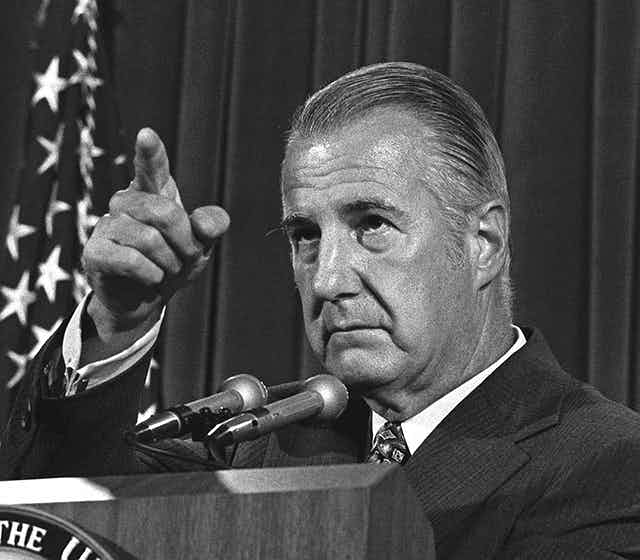
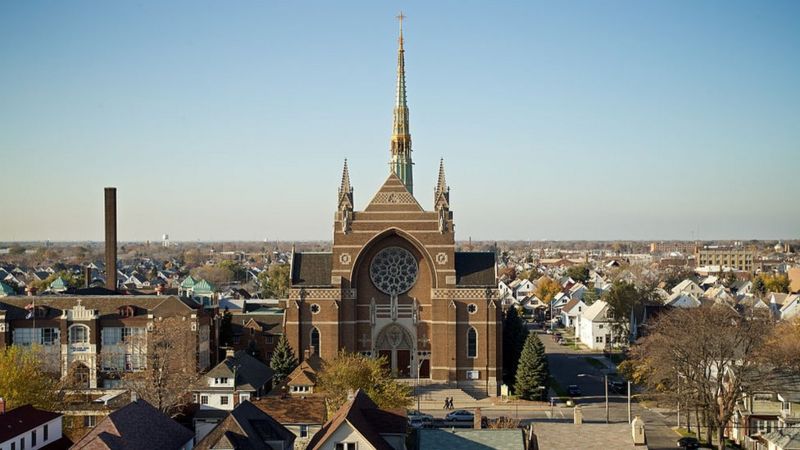
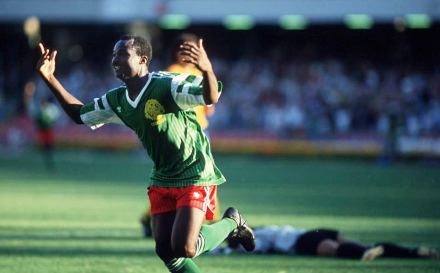
![Podcast EP 18: Late Stephen Keshi on the heartache of Senegal '92 and intrigue of AFCON '94 [Listen] 6 Podcast EP 18: Late Stephen Keshi on the heartache of Senegal '92 and intrigue of AFCON '94 [Listen] 4](https://naijasuperfans.com/wp-content/uploads/2020/05/stephen-keshi-1.jpg)
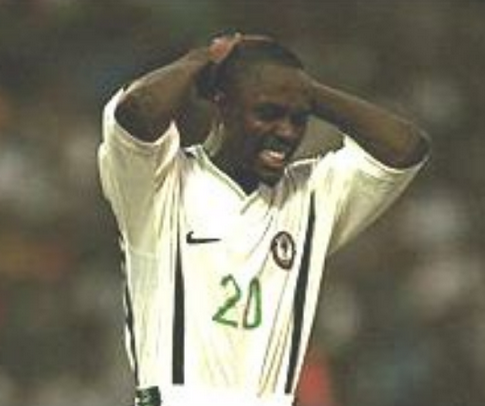
![Watch Odegbami recreate his first goal in the 1980 AFCON final [Video] 8 Watch Odegbami recreate his first goal in the 1980 AFCON final [Video] 6](https://naijasuperfans.com/wp-content/uploads/2020/03/20200323_165745.png)
![How Nigeria won AFCON in 1980 – Segun Odegbami with Mumini Alao [Video] 9 How Nigeria won AFCON in 1980 – Segun Odegbami with Mumini Alao [Video] 7](https://naijasuperfans.com/wp-content/uploads/2020/03/20200321_201622.png)


